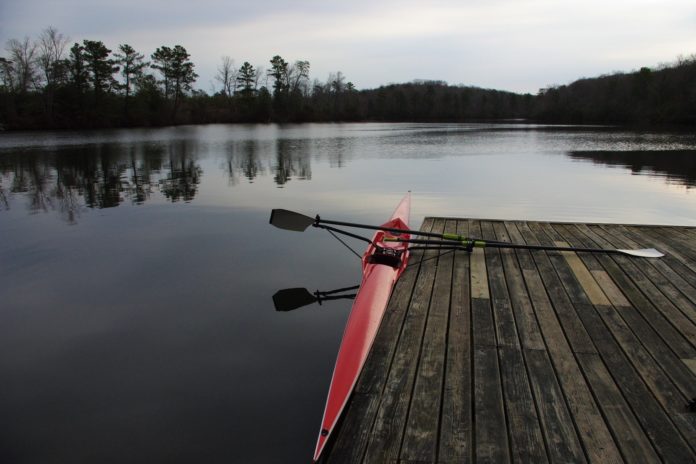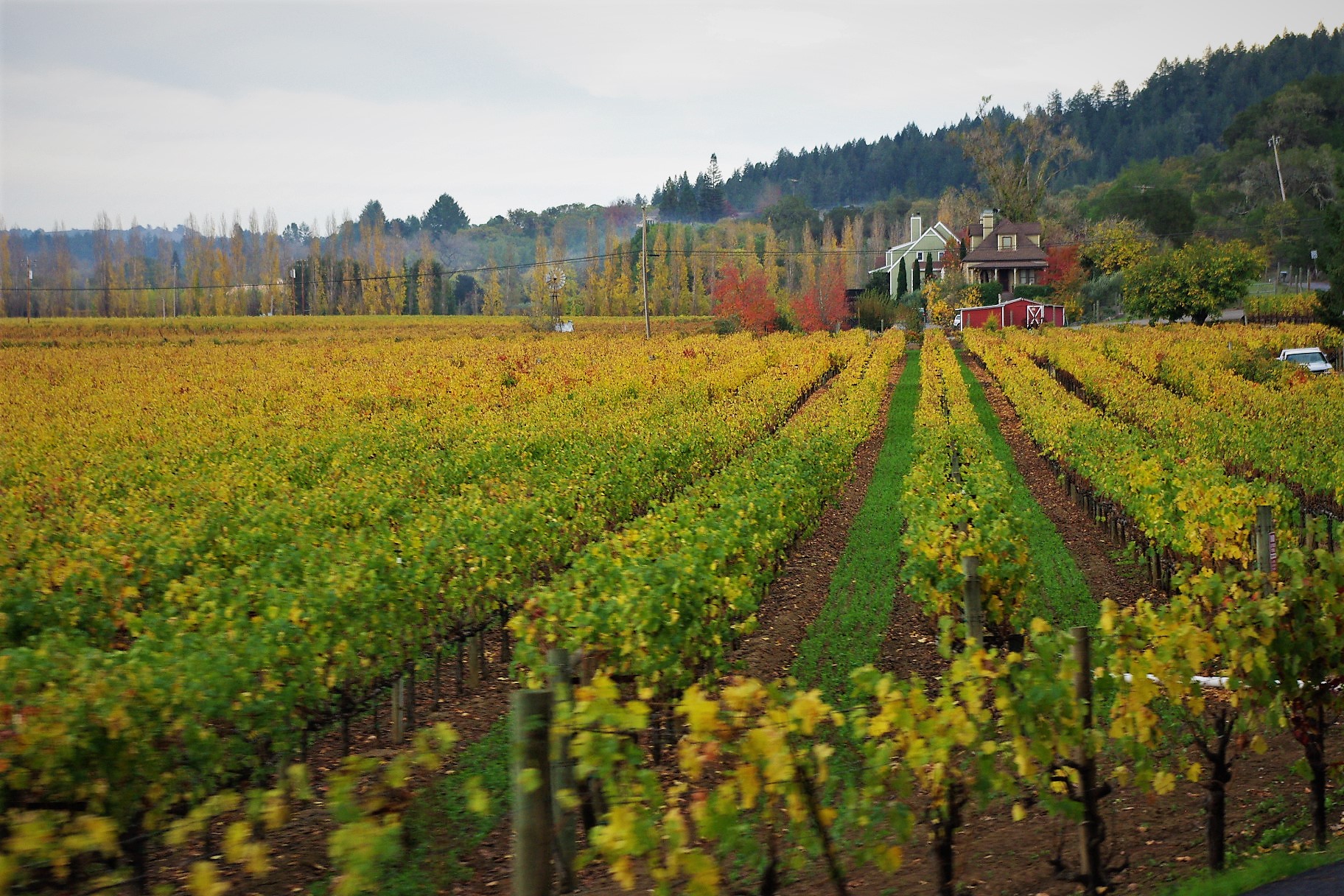I’ve been rowing longer than I probably should admit. What started as an unexpected pursuit many years ago has become a mission to get as good as I can. To challenge myself. Achieve my own potential.
But it hasn’t been an easy road, Not at all. Let’s begin by saying I’m not a natural athlete in any way. In fact, I’m more genetically inclined to play bingo instead of sports. But I love sports! In high school, I played volleyball, basketball, baseball, and water polo. I joined the cross-country team. In college, I took up racquetball. After graduation, I discovered golf.
While I was ‘okay’ at most activities, I clearly excelled at none. Still, I kept trying. Hopeful that one day, something might click.
In 2001, I was presented with the opportunity of a lifetime through the History Television series Quest for the Bay. Selected as one of a crew of eight, our task was to row a York boat from downtown Winnipeg to the Hudson Bay. It was done in the tradition of the fur trade – with gear, clothing, food, everything the same as it would have been in 1840.
It took 61 grueling days of backbreaking labour and blistered hands to achieve our goal of reaching York Factory. We crossed 10 lakes, followed four rivers, hauled the boat over five portages, and shot through 50 sets of rapids. It was the most incredible experience, and the most terrifying existence. It was exhausting, and exhilarating. It was horrible, and wonderful. It was everything I hoped it would be. And so much more than I ever could have imagined.
After Quest for the Bay, I returned home with a whole new outlook on life, a deep respect for physically hard work, and a profound desire to keep challenging myself. I had also developed a nagging curiosity to find out what it would be like to row a boat that did not weigh 1200 pounds.
One year later, I found myself at the Winnipeg Rowing Club. I knew nothing about the sport of rowing, or anyone who did it. But I felt the need to try. So I took the leap, joined the recreational program, and was immediatly hooked. Just like that, I had a new quest – and have been immersed in it ever since.
As I became more comfortable with rowing, I became more drien to focus on improving technique. So I decided to attend a training camp where I could spend time working on boat skills, along with some of the mental aspects of the sport. My new mission? To increase competency and build confidence.
Calm Waters Rowing seemed like the right place to do both of those things. It’s a rowing camp for masters, and I should clarify that the category of ‘masters’ is based on age, not skill level. Which means you don’t have to be ‘good’ to be considered a ‘master’. You just have to be old. I had no problem qualifying for that.
Located near Lancaster, Virginia, Calm Waters Rowing is run by husband/wife team John Dunn and Charlotte Hollings. Collectively, up to that point, they had spent more than 70 years immersed in the sport. They won international medals with their respective US national teams, and working as high performance coaches. Their coaching paths crossed at Cornell University, and they married soon after.
It was while coaching together at a sculling camp in Florida that life took an unexpected turn for the rowing couple. They discovered so much joy and satisfaction out of coaching masters that they set out to open their own sculling camp. They bought an inn and a lake in Virginia, and started Calm Waters Rowing in 2001 – coincidentally, the same year I was questing for Hudson Bay.
I flew into Richmond, rented a car, studied google maps, and set out to find them some 85 miles away. Their homebase is an inn called Levelfields, a gorgeous Georgia-style manor house built in 1859 that was once the centre of a sprawling plantation. Now, it’s home to making masters row better.
Training sessions take place three times daily on their private lake – a pond originally dammed to provide water to a mill – located a short drive away. Between rows, they provide demonstrations, analyze videos, and discuss technique. They videotape participants each morning and review the footage the same day, providing points of focus for the next on-water session.
Interestingly enough, one of the ‘good technique’ videos they showed us features the Canadian Men’s Eight that won world championships in 2002 and 2003. They showed us races by that incredible boat, often pausing the video to zero in on the technique of the athlete in stroke seat. Which happened to be Jeff Powell, a rower from my own hometown of Winnipeg! What are the odds of that?? (Side note… Jeff returned to Winnipeg after retiring from competitive rowing, and actually became my masters coach at the Winnipeg Rowing Club!)
Dunn and Hollings have a knack for zeroing in on ways to fine-tune someone’s individual technique, and relay it in ways that makes sense. During the first part of my stay, I witnessed them coach a mother and daughter who were absolute beginners, progressing them from wide-bottomed singles to narrow racing shells in just four days. Later in the week, I watched them help very experienced rowers make obvious improvements in a handful of sessions.
With me, they focused on removing the layers of years of coaching (from many different coaches) and take me back to the basics of the stroke. They had me eliminate all power and effort, row lightly, and just feel the stroke. Feel where the blades want to sit in the water. See the height where my hands want to be. Notice the pressure on the soles of the feet. Feel the connection to the core. Roll the handles away at the finish. Take the weight off the handles at the catch. And on it went.
During my week with them, I had countless ‘ah-hah’ moments. Strange as it may sound, while I’ve been rowing for 13 years, I don’t think I’ve ever really “felt” a stroke before. Not like this. It was a brand new experience, and so exciting!
Dunn and Hollings share a philosophy that rowing should feel easy. It’s through applying power, speed and acceleration that it becomes more challenging.
I believe the challenge is what makes rowing so exhilarating. That thrill of chasing the perfect stroke can be the most difficult thing – and in the same moment, the most satisfying. The most frustrating, and the most fulfilling. That must be the magic that keeps rowers coming back, row after row, for more. More pain, more gain.
I left Calm Waters feeling more competent and more confident – exactly what I set out to do – and came home renewed, rejuvenated, and more in love with the sport than ever before. I’m also more motivated to continue training to achieve my own potential, and get as good as I can.
Still hopeful that one day, maybe even sometime soon, it will all click…







